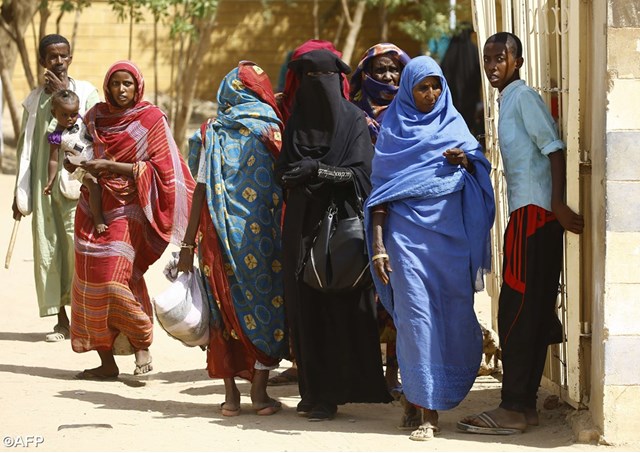
Ethiopian hospital treats thousands in remote region

(Vatican Radio) Ethiopia currently boasts the most booming economy in Africa and one of the top five fastest growing economies in the world. For the 10th consecutive year, the East African nation has reported an increase in GDP, with annual growth averaging 10% over the past decade, according to government statistics.
Yet in rural areas, drought and food shortages still threaten parts of the country and earlier this autumn the UN launched an appeal for funds to support over 8 million people still dependent on foreign aid.
Along Ethiopia’s northern border with Eritrea 100.000 refugees live in four overcrowded camps, overseen by a large military presence. Close to the border, in the town of Sheraro, the Maiani General Hospital is helping care for thousands of patients, including refugees from the nearby camps.
Luca Attanasio recently visited the hospital and talked to its director, Esayas Tiezazu, about the vital role of its health facilities in this remote part of the country.
Listen to the full interview:
He says the facilities are good for the local community, especially mothers who no longer have to travel 95 kilometres to the nearest hospital. The most common problems that are treated at the hospital are malaria, leishmaniasis, trauma and snake bites, he said, while up to 700 babies are delivered each year...
Lavinia Incocciati is a midwife and supervisor of the maternity department of the hospital. She talked to Luca Attanasio about the importance of providing ante-natal and post-partum care to women who are all suffering from dietary related anemia:
She says that building the hospital in such a remote area is very important for people in the rural villages and along the border area….she tells the story of one refugee mother from Ethiopia who gave birth in a camp but was then taken to hospital where her baby received the necessary care…
From November 18th to 21st staff from the Maiani hospital took part in an international congress entitled ‘Blood and Skin: new perspectives for neglected diseases’. The conference, held in Ethiopia, was organised by Professor Aldo Morrone, president of the Mediterranean Institute of Haematology and one of the founders of the hospital, which was inaugurated in 2014. He told Luca about the significance and the goals of that encounter:
He says that while such international conferences are normally held in Western countries, it is also important to gather in Africa and bring together experts with knowledge and experience of local diseases. As well as providing valuable support for research, the conference also helped to promote two campaigns, one against childhood diarrhea, the second highest cause of child mortality in the world, and the other against counterfeit drugs which kill over 100.000 people in Africa each year.
| All the contents on this site are copyrighted ©. |


